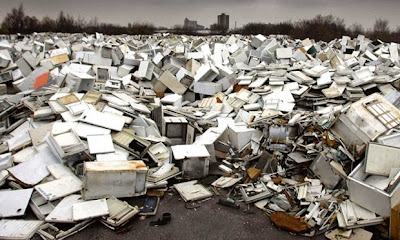"The West London Waste Authority (WLWA) has short-listed two bidders
for the long-term West London Residual Waste Services contract covering
the boroughs of Brent, Ealing, Harrow, Hillingdon, Hounslow, and
Richmond upon Thames.
"Two bidders:
- a consortium of E.ON Energy from Waste AG with Tata
Chemicals Europe Limited, and
- SITA UK Limited
are in the final stage of
the competitive dialogue process.
"Final tenders are to be submitted by 28 February 2013. WLWA expects
to be in a position to select its preferred bidder in April 2013 to
enable the new services to start in April 2015, but WLWA is exploring
with bidders the opportunity for an earlier start to begin diversion
from landfill as soon as possible.
"The contract involves handling up to 300,000 tonnes of residual waste
per year generated by a population of 1.4 million people, and covers
all aspects of treatment including any necessary transport, the
operation of transfer stations, and contracts for outputs such as
energy, refuse-derived fuel, and recyclates.
"Bids were invited from 'single entity' companies, consortia, or joint
ventures and WLWA offered its three waste transfer stations at
Brentford, South Ruislip and Park Royal as part of the procurement but
also welcomed proposals involving sites within bidders’ control or which
they intend to acquire.
"West London already recycles or composts almost 40% of its household
waste, more than any other sub region of London. The new contract will
allow continued flexibility to increase recycling up to at least 50% by
2020 and WLWA will focus even more on waste minimisation schemes in the
future."
28 February
Final Tenders Submitted
28 February to 5 April
Evaluation of Final Tenders
12 April
Project Board Meeting
26 April
Authority Meeting
29 April 2013
Announcement of Preferred Bidder
"So far as the Authority’s Residual Waste Procurement is concerned, we are fortunate in that we have come to the market somewhat later than many other authorities. As a consequence we have been able to review similar previous procurements. This has permitted us to adopt the best practice principles that the more successful of these other procurements have identified.
"In addition, the Authority is utilising the WIDP-developed contractual documentation as the basis of the procurement. WIDP is by the Waste Infrastructure Delivery Programmes, which is a specialist department within DEFRA.
"This documentation has been developed from the experience gained on a number of large waste procurements. Additionally, the documentation has benefited from the input of HM Treasury on financial issues. This documentation is seen as a benchmark for well-managed procurements.
"Finally, the procurement process has also benefited from the experience of a WIDP transactor (a professional with experience upon a number of previous similar procurements) advising us. And of course, we also have a number of specialist consultants advising on legal, financial and technical issues.
"... The WLWA can confirm that the Authority has modelled various waste growth/reduction scenarios. These provided the basis upon which the waste arisings contained within the bidding process were calculated. All scenarios were based upon recycling achieving a level of 50% across the Authority area."


























